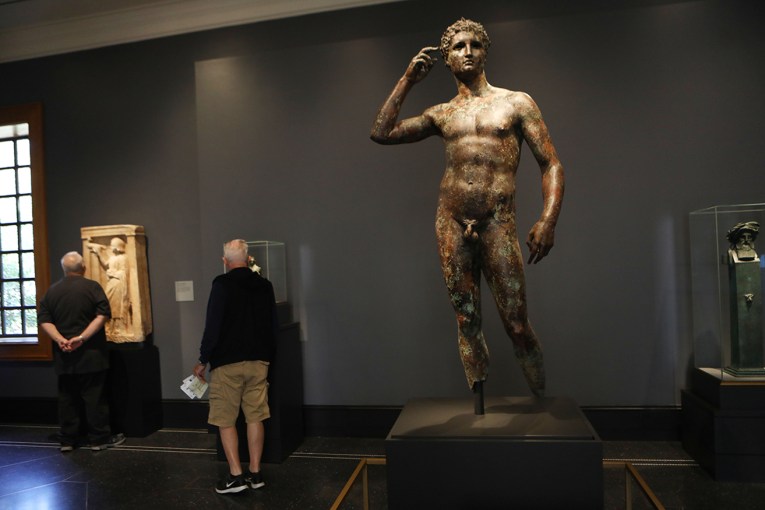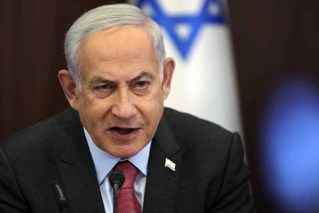Australians have ‘received same Kiribati welcome’ as Chinese ambassador


The Chinese ambassador to Kiribati receiving a traditional welcome. Photo: Facebook
The image was striking – the Chinese ambassador to the Pacific Island nation of Kiribati stepping off a plane and on to the backs of locals.
And the diplomatic furore has been swift.
But the question of appropriateness is not for us to judge, experts say. Particularly as Australians are reported to have also received the same welcome.
In some parts of the West, the image of Ambassador Tang Songgen has come to represent the nature of Chinese colonialism and meaningfully illustrate the nation’s rise to the top of the global order.
Federal Liberal MP Dave Sharma along with US Defense attache in the Pacific Islands, Commander Constantine Panayiotou, were among those in the Anglosphere who were rankled by the image’s optics.
Tweet from @DaveSharma
“I simply cannot imagine any scenario in which walking on the backs of children is acceptable behaviour by an ambassador of any country,” commander Panayiotou said.
Whereas the Chinese perspective is different.
The China newspaper Global Times hit back at the allegations of impropriety, calling it a “move intended to damage China’s image”.
Further, Chinese officials accuse Australia of having a double standard – from former High Commissioner Phillip Allars allegedly receiving the same manner of welcome to Kiribati to former Prime Minister Julia Gillard being welcomed to the Cook Islands while carried on a throne.
Mr Allars, the former Australian High Commissioner to Kirabati between 1997 and 2000, died in late December 2018.
Tweet from @JoLatuSanft
Katerina Teaiwa, an associate professor at the Australian National University’s College of Asia and the Pacific, says the Marakei manner of welcome has also been done for Australians, Kiribati locals report.
“As long as there is no violence, the appropriateness is not up to the international community but based on Marakei culture and values,” Ms Teaiwa told The New Daily.
“In this welcome, those on the ground were young men. The protocols and cultural decisions are made by the elders of the island.”
The Department of Foreign Affairs says the role of its staff is to “apply judgement and cultural sensitivity in carrying out their official duties”.
“Current Australian High Commissioner Bruce Cowled has not visited Marakei Island, and has not been involved in any ceremony of this type,” a DFAT spokesperson told The New Daily.

The nation of Kiribati is located in the Pacific.
Rae Bainteiti, a Kiribati man living in New Zealand, told the ABC that while he didn’t have an issue with the photo, he could understand why it has caused a raft of strong opinions.
“When I first saw the post on Facebook, one of my immediate comments was what a beautiful Kiribati culture,” he told Pacific Beat on the ABC.
“It might be misinterpreted by other people depending on how they see it because the initial poster did not put background information or context into what was happening at the time.”
Kiribati formally cut ties with Taiwan and switched its allegiance to China in September last year, leaving Taiwan with just 15 diplomatic allies.
Freelance journalist Rimon Rimon, who also worked with former president Anote Tong, said while many Taiwan ambassadors had visited, he wasn’t aware of any who received the same type of welcome.
Why does it matter?
The diplomatic blow-up comes as the Australian government – and Prime Minister Scott Morrison specifically – have intensified a focus on Pacific relations in recent years, with a policy termed a ‘Pacific Step-Up’ and many visits to island neighbours like PNG, Fiji and Tuvalu.
In announcing the federal government’s signing of a letter of intent to take supplies of the Oxford University vaccine if it’s proven safe and effective, Mr Morrison said Australia “remains committed to ensuring early access to the vaccine for countries in our Pacific family, as well as regional partners in Southeast Asia.”
Professor Jane Golley, director of the Australian Centre on China in the World at the Australian National University, said Australia’s promise to supply vaccines in the Pacific could serve several purposes.

Scott Morrison at AstraZeneca’s Sydney labs on Wednesday.
“If we accept there is a geopolitical or geoeconomic rivalry in the Pacific between China and Australia, it makes sense for Australia to think about ways it can most effectively compete,” she told The New Daily.
“Sharing vaccines is a fantastic example of a strategy that makes really good sense, rather than competing on infrastructure, where we’re far less likely to outdo China.”
Professor Golley said sharing vaccines is “a wonderful idea” while adding that it was important to note which countries were included.
“If we’re only sharing with allies, or only in countries where we perceive ourselves to have influence or want to grow influence, that becomes more than benevolent. It becomes strategic or economic,” she said.








